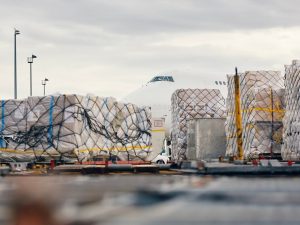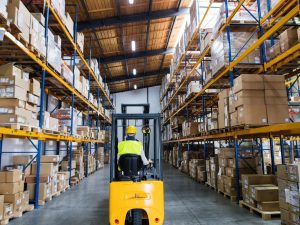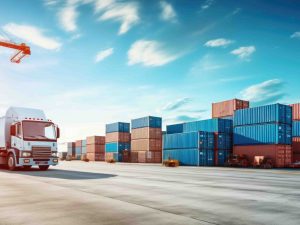Air cargo expert Jalpa H. Vithalani was honoured with the Women Business Professional of the Year Award at the recent India Cargo Awards 2025 in New Delhi. Recognised for her outstanding contributions to the air cargo and logistics sector, Jalpa’s leadership and expertise continue to inspire professionals across the industry.
Read More »Air cargo growth shows signs of cooling: Xeneta
The global air cargo market is projected to see 3 to 4 per cent demand growth in 2025 based on current trading conditions, according to industry analysts Xeneta. “Over the past two months, air cargo benefited from ‘piggybacking’ on global uncertainty, whether through frontloading supply chains or shifting from ocean to air to move goods faster before tariffs took effect,” said Niall van de Wouw, Chief Airfreight Officer, Xeneta. “September’s figures suggest this trend is easing as stability returns to major corridors and global trade becomes less turbulent,” he added. After unexpectedly strong volumes over the summer, September’s data signalled a slowdown as the industry headed into the final quarter. Marking the start of the peak season, September recorded just over 3 per cent year-on-year growth, matching capacity expansion, compared with over 5 per cent growth in July and August. Month-on-month volumes rose by a modest 3 per cent.
Read More »‘India must leverage ULIP, ONE Record to boost efficiency’
Dinesh Krishnan, Honorary Treasurer, ACAAI, said, “The aim of the convention is to outline actionable growth strategies for the air cargo industry amid global turbulence. This year’s focus goes beyond basic digitalisation toward achieving true end-to-end visibility and data integration through ULIP and IATA’s ONE Record. The convention will address key challenges such as infra bottlenecks, high dwell times, capacity shortages, and regulatory delays, while pushing for 24×7 customs clearance to strengthen India’s position as a regional hub. It will examine the impact of protectionism, regional conflicts, and sustainability imperatives, including SAF and green logistics. The goal is to foster consensus among regulators, airlines, airports, and forwarders, aligning ops with logistics objectives and bringing global best practices to India. ACAAI is set to host its 49th Annual Convention in Bali from 6–9 November.
Read More »NDR InvIT enters Lucknow with warehousing deal
NDR InvIT Trust has acquired MLG Warehousing and Industrial Park in Lucknow, Uttar Pradesh, for `143.9 crore, marking its entry into the city’s logistics market. The Grade-A facility offers around 4.63 lakh sqft of leasable space on 21 acres and is 98 per cent leased to prominent clients in FMCG, third-party logistics, retail, and paint sectors. Located along the NH 30 (Lucknow-Raebareli Road) corridor, the warehouse benefits from excellent connectivity, while its position on the southern edge of the city ensures access to major industrial hubs in neighbouring districts. The acquisition reinforces the trust’s commitment to expanding its high-quality logistics portfolio in northern India.
Read More »Totsol Aviation is Fastest Growing GSSA at ICA 2025
Totsol Aviation was felicitated with the Fastest Growing GSSA Award at the recent India Cargo Awards 2025 held in New Delhi. Vikas Kukreja, Director, Totsol Aviation, said, “A thank you to the DDP Publications for this prestigious title. It truly motivates us to exceed expectations daily. Totsol Aviation is built on one mission — to be the trusted GSSA, driving lasting success for our partners in the Indian market.”
Read More »Allcargo Logistics gets green signal for corporate reforms
Allcargo Logistics has received approval from the National Company Law Tribunal (NCLT), Mumbai Bench, for its Composite Scheme of Arrangement under Sections 230–232 of the Companies Act, 2013. This marks the completion of the legal process for the company’s comprehensive restructuring plan, covering its express distribution, contract logistics, and global supply chain businesses, said a company statement. Under the approved scheme, the International Supply Chain business of Allcargo Logistics Ltd will be demerged into a new listed entity, Allcargo Global Ltd. The domestic express and contract logistics businesses —operating under Allcargo Gati, Gati Express & Supply Chain, and Allcargo Supply Chain — will be consolidated under Allcargo Logistics Ltd, which continues as a listed entity. The restructuring allows global and domestic ops to function independently, with strategic focus, dedicated management oversight, and efficient capital allocation.
Read More »FIATA appoints industry leaders to key positions
Tej Contractor, Director, Mayur C. Contractor Logistics, MCC Container Lines, and Transcargo India, has been elected VP, FFFAI at the recent FIATA World Congress held in Hanoi, Vietnam. In another development, Keshav Tanna, Member, Board of Advisors, ACAAI, has been appointed Secretary General, FIATA. Their appointments underscore FIATA’s recognition of India’s influence in shaping global logistics policy and development. The recognition coincides with ACAAI being honoured by FIATA at the same Congress for hosting the FIATA Regional Asia-Pacific Meeting in New Delhi earlier this year —testament to India’s growing leadership and active engagement in the global freight forwarding community.
Read More »Goyal unveils new digital tools under PM GatiShakti
Piyush Goyal, Union Minister of Commerce and Industry, said, “The time is ripe for PM GatiShakti to move to the next level. It is a central tool for national and human development, aimed at achieving the vision of Viksit Bharat 2047.” He noted the initiative’s impact was visible across sectors, with logistics costs showing a decline and last-mile connectivity improving. He highlighted how PMGS has evolved into a key tool for coordination and effective planning across ministries, states and departments. Goyal also announced the launch of new digital tools, including a unified geospatial interface offering public access to PMGS databases. He was speaking at the fourth anniversary of PMGS, held at Bharat Mandapam. The event focused on the initiatives and developments have taken place in the past four years under PMGS and its future vision.
Read More »‘Need better road connectivity at NMIA to facilitate ease of doing business’
Afzal Malbarwala, MD, Galaxy Freight said, “Firstly, we would like to thank our government for providing Mumbai with an additional airport, given that Mumbai is the financial centre and one of the most important cities in India. We definitely need better road connectivity to the new airport, and while it’s going to take some time, it’s super important for making things easier for travellers. Right now, people flying out of Mumbai might find it quicker to get to BLR or MAA instead. The government is on it, and once the infrastructure is finished, getting to the airport should be a breeze. One big thing to think about is how many airlines will start operating from this airport. If cargo gets offloaded and the next flight isn’t for a week, we need to figure out who will handle the extra costs and how the remaining goods will get shipped. Will airlines use bonded trucking to take cargo back to the old airport, or will they wait for the next flight? – is another question that comes to mind. These hiccups are part of getting started, but we’re hopeful they’ll get sorted out soon. Once everything is running smoothly, this airport will bring awesome advantages with its space and high-tech facilities, and the warehouses will be huge and automated. The Navi Mumbai International Airport (NMIA) along with the Noida International Airport, or Jewar Airport, is set to be a game changer, especially since it’s part of the Indian government’s plan to double the domestic airport network to 300 by 2047. Unlike the busy Chhatrapati Shivaji Maharaj International Airport, NMIA is designed for smooth, congestion-free access. Plus, it’s conveniently located near the Nhava …
Read More »‘Additional capacity will also help ease the pressure on Mumbai International Airport‘
Rajen Bhatia, Chairman, ACAAI Western Region, said, “While the exact commencement date for cargo operations at Navi Mumbai International Airport is yet to be announced, the industry is already looking forward to the opportunities it will bring. As one of India’s most anticipated infrastructure projects, NMIAL holds the potential to significantly reshape cargo movement, especially in the western region. We expect the airport to offer world-class facilities, efficient customs clearance, and seamless multimodal connectivity that will help reduce transit times and logistics costs. The additional capacity will also help ease the pressure on Mumbai International Airport, which has long been operating at near full capacity. For the logistics and freight forwarding community, the new airport could open up greater opportunities in handling specialised cargo, such as pharmaceuticals, perishables, and express shipments more effectively. Its proximity to JNPT and proposed integrated logistics zones could further strengthen sea-air connectivity and help position India as a more competitive logistics hub in the region. We look forward to the timely launch of cargo operations and to working collaboratively with stakeholders to realize its full potential.”
Read More » Cargo Breaking News
Cargo Breaking News









